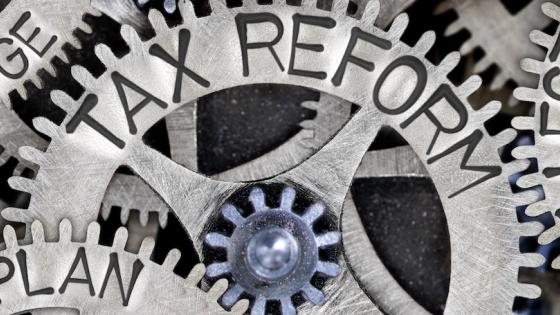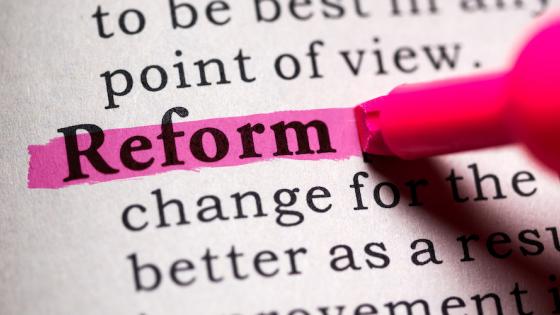The economic analysis of government taxation and expenditure has had a major influence on policy debates and, indeed, policy decisions. For example, the Nobel Prize–winning analytical framework of James Mirrlees (1971), which balances equity and efficiency considerations in a precise manner, is argued to have influenced then Chancellor of the Exchequer George Osborne’s decision to lower the top rate of income tax (Atkinson 2015: 184–185).
Similarly, reform of public expenditure is also influenced greatly by economic analysis. For example, fuel subsidies are argued to be fiscally unsustainable, inefficient, and inequitable (Coady et al. 2006). But removing these subsidies has led to what came to be termed ‘IMF riots’. Consider also the ‘gilets jaunes’ (‘yellow vests’) protests in France:
The diffuse interests represented in France’s National Assembly had agreed to increase gas taxes in 2014. However after farmers and their sympathizers closed down roads and took their fight to the cities, President Emmanuel Macron’s government backed down and rescinded the tax hike in 2018. (Eichengreen 2021)
These examples, sharp and prominent as they are, only scratch the surface of the question of social acceptability of tax and transfer schemes which, on the face of it, pass the usual economic tests for efficiency and equity. Going beyond the calculations of actors who are rational in the conventional economic sense are responses based on other perspectives and an altogether different calculus.
Our recent work (Kanbur and Levy 2022) reviews the social acceptability of alternative tax and transfer schemes. Social acceptability tends to be much more culturally and contextually specific than conventional economic analysis, which is based on efficiency and equity. We draw on a range of literatures, including behavioural public economics, carbon tax plus compensation schemes, and universalism versus targeting, as well as experiences in Latin America and elsewhere of implementing conditional cash transfers and other redistributive mechanisms. As we shall see, trust in government emerges as a key issue.
The usual rational-actor way to think about the consequences of an alternative scheme of tax and transfer, or indeed any policy, is to delineate winners and losers from the change. An obvious answer to those who oppose a change on narrow rational economic self-interest grounds is to compensate them accordingly, so neutralising their opposition. If the losers are also at the bottom of the income distribution, such compensation is additionally beneficial from an egalitarian perspective. But within the political economy framework, the main reason for the compensation is to move the opponents into the supporters’ column. For example, Paoli and van der Ploeg (2021) use UK micro data to estimate the impact of carbon taxes along the income distribution and simulate the effects of alternative compensation mechanisms through recycling carbon tax revenues.
The question of credibility of compensation looms large, beyond the technocratic calculations of gains and losses and alternative compensation mechanisms. Recipients need to believe that compensations will actually be paid once the policy has been introduced. In Iran, for example, the government overcame this problem subsidy in a novel way: “They handed out the cash transfers ahead of the subsidy reform. People could see the money in their bank account, but they could not spend it until the subsidies were removed” (Devarajan 2020).
In 2003 Mexico’s President Fox proposed to remove exemptions to VAT, a permanent change requiring approval by Congress. The president pledged transfers to fully compensate households up to the fourth decile of the distribution (thus over-compensating those in the first three). Critically, however, these transfers would be set by presidential decree, requiring citizens to trust that future presidents would sustain them. The proposal was defeated.
Chile provides an example in the opposite direction. During the presidential elections of 2013, then candidate Michelle Bachelet – who had been president before and was a trusted politician – ran on a campaign to increase taxes to fund education reform. In 2014, once elected, she carried out a tax reform of approximately 2% of GDP focused mostly on increasing income taxes. She then used the additional resources as promised to expand access to higher education, but with no compensation to any household (Fairfield 2014).
The contrast between Chile and Mexico highlights two additional issues with the social acceptability of tax reforms aside from trust: the source of funds and their purpose. In the case of Chile, society was told that income taxes would be raised to widen access to higher education, a concrete issue which had been the subject of intense social mobilisation in the two years prior to the presidential elections. In the case of Mexico, society was told that consumption taxes would be raised to improve social welfare, a vaguer issue where the benefits were unclear to many.
The burgeoning literature on behavioural public economics provides further analytical and empirical support to these observations and highlights how the standard economic model needs to be enriched (see, for example, reviews by Bernheim and Taubinsky 2018, Chetty 2015, Congdon et al. 2009, and studies by Dwenger and Treber 2018, Slemrod et al. 2019). A good recent illustration takes us back to the gilets jaunes protests in France. Douenne and Fabre (2022) find that:
Using a representative survey, we find that after the Yellow Vests movement, French people would largely reject a tax and dividend policy, i.e. a carbon tax whose revenues are redistributed uniformly to each adult. They overestimate their net monetary losses, wrongly think that the policy is regressive, and do not perceive it as environmentally effective.
Carattini et al. (2018) find these effects to be pervasive in their review of responses to carbon tax proposals.
What is the answer to this resistance to reforms that pass the standard economic tests of efficiency and equity? Of course, more information on the economic consequences would help and this has been argued in the literature. But in our paper, we draw on social protection reform in Latin America (Levy and Cruces 2021) to argue that a systemic approach might work better to convince populations of the need for change, rather than the ‘scheme by scheme’ approach that is the current norm. A systemic proposal could appeal beyond the narrow interests of individuals or groups.
To use the framing of political science, ideas can change interests. At present, middle-income groups may oppose isolated reforms because they only perceive costs. They oppose eliminating generalised fuel subsidies because compensations are usually targeted at groups with lower incomes than theirs. They oppose tax increases because they perceive that they finance social protection programmes that fail to address their needs. With these perceptions, reforms are very difficult – but an overall vision of the social protection system may change such perceptions. A proposal for a broad redesign might allow different groups to see what is in it for them and to understand that maybe they can be winners. Even though individual components of the proposal might be undesirable to some, the proposal as a whole may not be.
All in all, a broad proposal for systemic reform might then be more acceptable than isolated reforms. But for this to happen, members of society need to know where they are being led – what the endpoint looks like. They need to be presented with new ideas for them to consider that their interest might lie elsewhere. Systemic reform of social protection does not imply that everything needs to be reformed at the same time. But it does imply that an overall vision of the desired social protection system is required, even if individual reforms are carried out gradually.
Thus the equity-efficiency framework usually used by economists to analyse taxation, based on the rational individual who carefully calculates costs and benefits, is incomplete because it pays little attention to the social acceptability of taxation. This is not to deny that individuals pursue their self-interests, but it is to say that their attitudes towards taxation are more complex than that. They also depend on factors like trust in government, perceptions of fairness, feelings of solidarity and reciprocity, and, critically, their own ideas. These need to be factored in when policy proposals are made to reform specific taxes or subsidies, and even more so when they involve reforming various taxes or subsidies at the same time.
References
Atkinson, A B (2015), Inequality: What can be done?, Harvard University Press.
Bernheim, D, and D Taubinsky (2018), “Behavioural public economics”, in B D Bernheim, S DellaVigna and D Laibson (eds.), Handbook of Behavioural Economics – Foundations and Applications 1, Elsevier.
Carattini, S, M Carvalho and S Frankhauser (2018), “Overcoming public resistance to carbon taxes”, Wiley Interdisciplinary Reviews: Climate Change 9(5): e531.
Chetty, R (2015), “Behavioural economics and public policy: A pragmatic perspective”, American Economic Review: Papers and Proceedings 105(5): 1–33.
Coady, D, M El-Said, R Gillingham, K Kpodar, P Medas and D Newhouse (2006), “The magnitude and distribution of fuel subsidies: Evidence from Bolivia, Ghana, Jordan, Mali, and Sri Lanka”, IMF Working Paper WP/06/247.
Congdon, W J, J R Kling and S Mullainathan (2009), “Behavioural economics and tax policy”, National Tax Journal 62(3): 375–86.
Devarajan, S (2020), “Development policy in the populist era”, Brookings Institution (blog), 13 January.
Douenne, T, and A Fabre (2022), “Yellow Vests, pessimistic beliefs, and carbon tax aversion”, American Economic Journal: Economic Policy 14(1): 81–110.
Dwenger, N, and L Treber (2018), “Shaming and tax compliance”, VoxEU.org, 30 October.
Eichengreen, B (2021), “The logic of effective climate action”, Project Syndicate, 15 June.
Fairfield, T (2014), “The political economy of progressive tax reform in Chile”, in E Mahon, M Bergman and C Arnson (eds.), Progressive Tax Reform and Equality in Latin America, Washington, DC: Wilson Center.
Kanbur, R, and S Levy (2022), “Social acceptability of tax and transfer schemes”, LSE Public Policy Review, forthcoming.
Levy, S, and G Cruces (2021), “Time for a new course: An essay on social protection and growth in Latin America”, United Nations Development Programme, LAC Working Paper Series No. 24.
Mirrlees, J (1971), “An exploration in the theory of optimum income taxation”, Review of Economic Studies 38(2): 175–208.
Paoli, M C, and R van der Ploeg (2021), “Recycling revenue to improve political feasibility of carbon pricing in the UK”, VoxEU.org, 4 October.
Slemrod, J, O Ur Rahman and M Waseem (2019), “Pecuniary and non-pecuniary motivations for tax compliance: Evidence from Pakistan”, VoxEU.org, 15 May.



